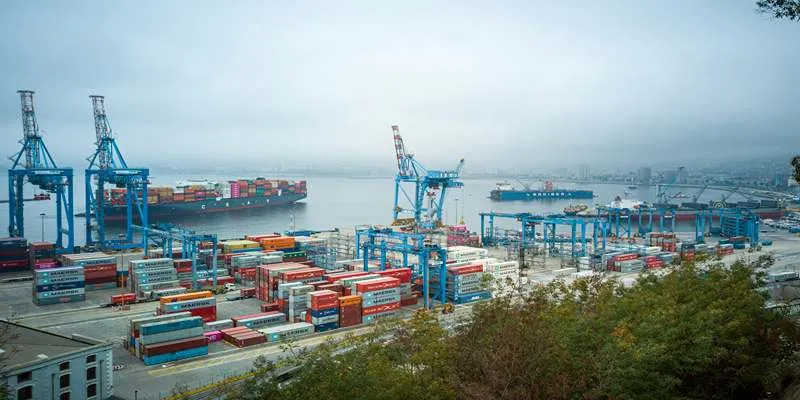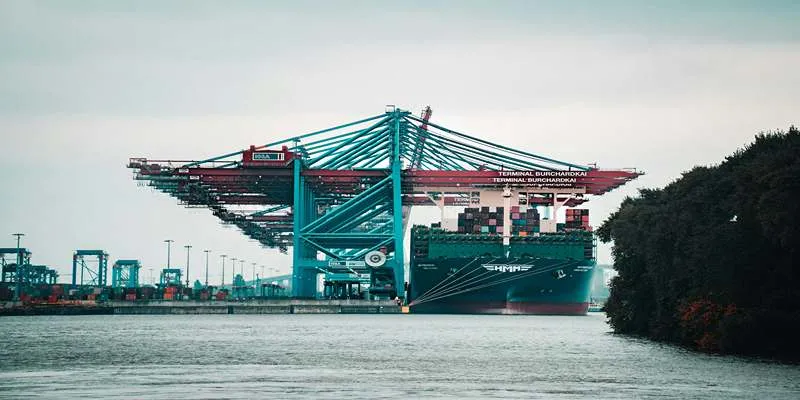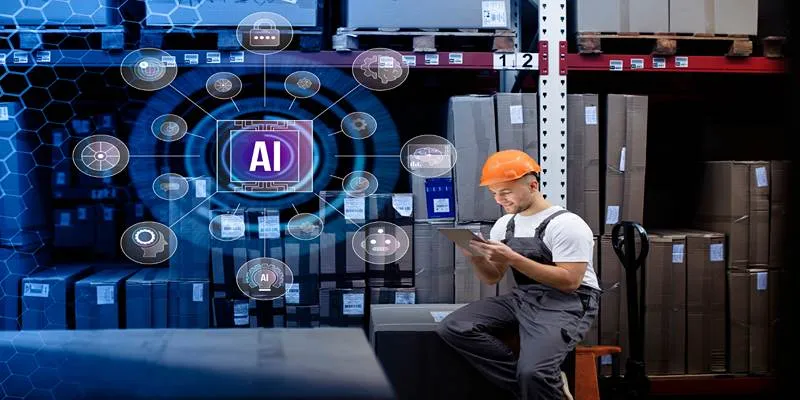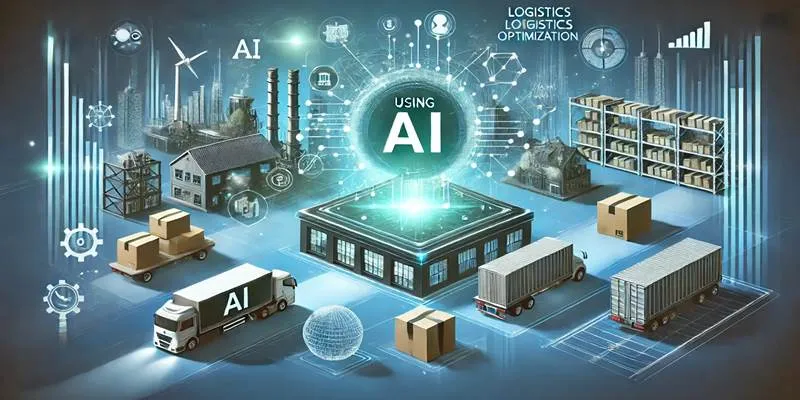Supply Chain 4.0, powered by generative AI, is transforming global supply chains by enhancing efficiency, effectiveness, and decision-making processes. Previously, supply chain management relied heavily on manual tracking and basic forecasting techniques, which were time-consuming and often inaccurate. Today, AI in supply chains leverages data, automation, analytics, and machine learning to streamline operations. From automating last-mile delivery aspects to real-time inventory tracking, AI significantly enhances supply chain performance. Businesses adopting AI can cut costs, boost customer satisfaction, and maintain competitiveness in today’s dynamic economy.

AI in Supply Chains: Revolutionizing Operations
How AI Is Improving Supply Chain Visibility
AI enables real-time tracking of shipments, available stock, and demand fluctuations. Traditional supply chains often suffer from opacity, reducing efficiency. With AI, companies can analyze logistics activities more effectively, leading to better decision-making. Machine learning anticipates disruptions, allowing supply chain managers to adjust routes, manage inventory, and ensure timely delivery. Additionally, AI strengthens supplier relationships by providing a centralized platform to monitor global activities. By integrating advanced technologies into supply chain solutions, companies can minimize errors and reduce delays, thereby increasing supply chain reliability.
Supply Chain Optimization With AI: Data-Driven Decisions
AI enhances supply chain optimization by leveraging predictive analytics to anticipate demand patterns and manage inventory levels. Unlike traditional forecasting methods that rely solely on historical data, AI evaluates market trends, economic factors, and real-time data for more accurate predictions. Companies incorporating AI into supply chain management can avoid overstocking, stockouts, and excess inventory. AI also automates supply chain planning, enabling quick, data-driven decision-making. These capabilities make supply chains more effective and resilient in the complex global market landscape.
Logistics Automation: AI’s Role in Transportation and Warehousing
AI-Powered Logistics Automation for Smarter Operations
Logistics automation, driven by AI, is rapidly advancing transportation operations through precise route planning, reduced fuel consumption, and improved delivery accuracy. AI-based route optimization systems consider traffic flow, weather conditions, and other factors to select the best delivery routes. Machine learning helps logistics companies anticipate delays and adjust delivery schedules accordingly. Innovations like drones and self- driving trucks are enhancing last-mile delivery efficiency. By integrating AI into logistics management, companies can reduce operational costs, improve delivery times, and enhance customer satisfaction.
AI in Warehousing: Robotics and Automation
AI and robotics are revolutionizing warehousing by automating sorting, picking, and packing processes, reducing the need for manual labor. AI- enhanced warehouse management systems optimize storage areas, accelerate order processing, and boost operational performance. These improvements lower operational costs, minimize order mishaps, and enhance the customer experience. As technology advances, smart warehouses will further utilize AI and robotics to refine supply chain processes.

Challenges and Considerations in AI-Driven Supply Chains
Addressing AI Integration Challenges in Supply Chains
Despite its advantages, AI adoption in supply chains faces challenges such as high implementation costs and technical issues. Many companies lack the necessary infrastructure or experience to implement AI logistics solutions effectively. Workforce adaptation is another issue, as employees need to learn how to operate AI tools and systems. Additionally, integrating AI with existing supply chain management software often requires system updates for compatibility. Regulatory issues related to AI use in automation must also be addressed. Overcoming these challenges requires strategic AI training, phased implementation, and collaboration with AI technology vendors.
Ethical and Security Concerns in AI-Powered Logistics
As AI adoption increases, so do concerns about ethical issues and security threats. AI-powered supply chains gather vast amounts of data, making them vulnerable to cyber threats. Companies must implement robust security measures to protect data. Ethical considerations also arise, particularly when AI decisions impact employment or contractor opportunities. Ensuring AI system transparency is crucial to reducing bias and promoting fairness. To support AI implementation in supply chains, companies should establish codes of conduct, oversee AI decisions, and comply with regulatory frameworks.
Conclusion
Generative AI is reshaping global supply chains by enhancing visibility, optimizing logistics automation, and improving efficiency. AI-powered solutions enable businesses to refine transportation, warehousing, and inventory management while reducing operational costs. However, successful adoption requires addressing challenges like integration costs, security risks, and ethical concerns. As AI technology progresses, its role in supply chain optimization will expand, making supply chains more resilient and adaptive. Companies embracing AI innovations will gain a competitive edge, securing a future where automation drives supply chain success and global logistics efficiency.
 zfn9
zfn9























